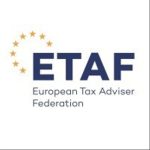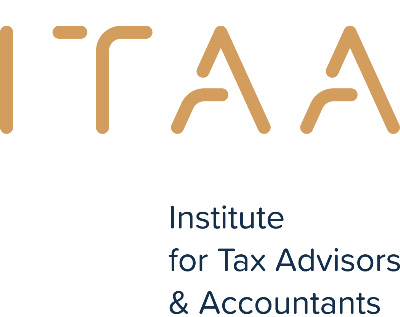MEPS RECOGNIZE THE SPECIAL STATUS OF REGULATED PROFESSIONS IN THE SINGLE MARKET
The European Parliament adopted on Wednesday 16 February the report drafted by the Polish MEP Kosma Zlotowski (ECR) on tackling non-tariff and non-tax barriers in the Single Market. The report lists some of the key unjustified barriers to cross-border activities, stressing that inadequate implementation and enforcement of EU law, restrictive national regulations, territorial supply constraints, red-tape and gold-plating may have negative consequences both at EU and national level, depriving citizens of jobs, consumers of choices, and entrepreneurs of opportunities. It proposes a number of measures to tackle the current shortcomings in the single market, including better and more unified transposition of EU law, monitoring of national rules, finding a balance between justified and unjustified barriers, ensuring the right level of harmonisation, stronger enforcement and further digitalisation of public services. ETAF particularly welcomes the fact that MEPs recognize “the specific status that regulated professions have within the single market and their role in addressing the public interest”. In September, ETAF wrote a letter to MEPs to suggest several amendments to the report.
SIX COUNTRIES WANT THE FUTURE AMLA TO SUPERVISE CRYPTO ASSETS
Austria, Germany, Italy, Luxembourg, Spain and The Netherlands are reportedly pushing for the future EU Anti-Money laundering Authority (AMLA) to be also responsible for supervising companies providing crypto assets services. “AMLA should supervise directly the riskiest financial entities and crypto-asset service providers (CASP), be they big or small, selected on the bases of objective risk criteria, while ensuring a comprehensive geographical coverage of the internal market”, the six countries reportedly say in a position paper circulated just before a discussion of financial services attachés in the Council of the EU on Monday 14 February. The paper also asks for an EU-wide scrutiny with “at least 1 obliged entity established in each Member state, identified on a risk-based approach”.
EUROPEAN COMMISSION TO PROPOSE VAT WAIVER FOR DEFENCE PURCHASES BY 2023
The European Commission announced on Tuesday 15 February, as part of a package of measures on Space and Defence, that it will propose, by early 2023, a VAT waiver to incentivise joint procurement of defence capabilities developed within cooperative EU frameworks. The establishment of a legal framework inspired by the European Research Infrastructure Consortium that would benefit from a VAT waiver on equipment that Member States consortia would buy and own, could be considered in this context, it said. The president of the European Commission, Ursula von der Leyen, already announced this measure during her State of the Union’s Speech in September.
EUROPEAN PARLIAMENT LOOK AT SOLUTIONS TO REDUCE THE VAT GAP
The European Parliament adopted on Wednesday 16 February a report drafted by the Belgian MEP Olivier Chastel (Renew Europe), which proposes a series of changes to reduce the VAT gap within the EU, i.e. the difference between the amount of expected VAT revenue and the actual VAT collected. MEPs stress that the wide range of reduced VAT rates for businesses is problematic. Moreover, they call for the introduction of an EU e-invoicing standard harmonising, in particular, the information contained in an e-invoice in order to facilitate cross-border interoperability, ensure legal compliance, increase transparency in commercial transactions and thus limit fraud and errors. The report also stresses the need to move to a definitive VAT system based on the principle of taxation in the country of destination.
MEPS CALL FOR GREATER TAX HARMONISATION IN THE EU
The European Parliament adopted on Tuesday 15 February a report drafted by the German MEP Markus Ferber (EPP) looking at the effect of national tax measures on the EU economy. The report argues that the single market requires harmonisation and coordination in tax policy-making in order to increase the integration of the single market and prevent base erosion. MEPs consider that harmonisation of the tax base, such as the common corporate tax base or the ‘Business in Europe: Framework for Income Taxation’ (BEFIT), could reduce compliance costs for SMEs operating in more than one Member State. MEPs also call on Member States to rapidly agree on a proposal for a European corporate tax code and ask the Commission to investigate whether some Member States are distorting competition by artificially lowering their marginal effective tax rates.
OECD TO SET UP A NEW INCLUSIVE FRAMEWORK ON CARBON PRICING
The OECD will set up a global initiative on carbon pricing, based on the model of the OECD/G20 Inclusive Framework on Base erosion and profit shifting (BEPS) which led to an agreement on a two-pillar solution to address tax challenges arising from the digitalisation of the economy. “You’ll see that we have [a] project for a new inclusive framework on carbon pricing”, Pascal Saint-Amans, the director of the OECD Centre for Tax Policy and Administration, reportedly said during the OECD tax and development conference on Wednesday 16 February. OECD Chief, Mathias Cormann, already argued in the past that efforts to price carbon should be elevated to the international level. In his report to G20 Finance Ministers published on Friday 18 February, he explained that the creation of an Inclusive Framework-like initiative on carbon pricing “aims to bring countries together on an equal footing to agree on common methodologies for modelling carbon price equivalent measures (implicit pricing) and measuring explicit prices to better inform policy choices”.
FISC SUBCOMMITTEE MISSION TO PARIS
A delegation of MEPs from the subcommittee on tax matters (FISC) of the European Parliament, led by Paul Tang (S&D, The Netherlands), will travel to Paris on 24 February 2022. They will meet with representatives of the French tax authorities, the French administration and the OECD. A working lunch will also be held with representatives from business associations (MEDEF and AFEP) and NGOs (Terre Solidaire, Oxfam, ONG One and the French Taxpayers Association). Discussions should focus on the implementation of the OECD tax deal as well as further topics, including digital taxation, environmental and energy taxation and recent initiatives to combat harmful tax practices.


